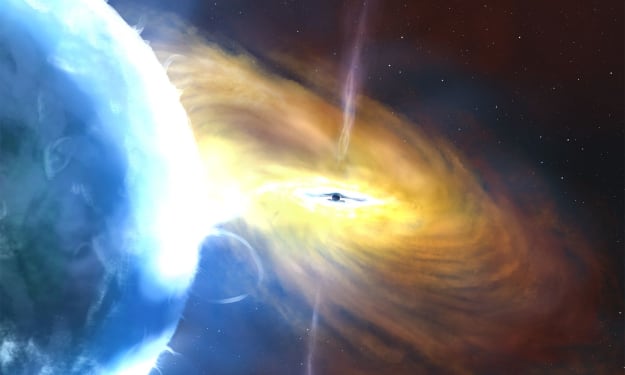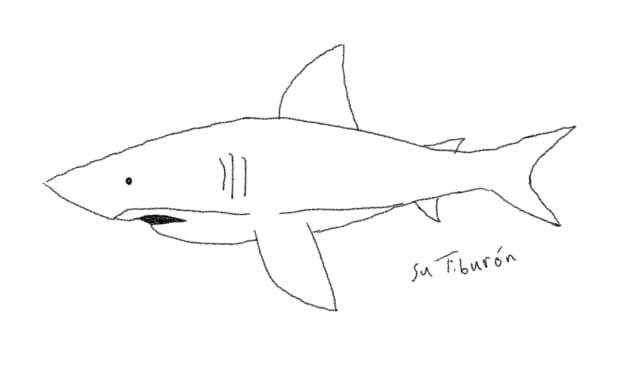Astronomers find zombie planet that shouldn't exist
It orbits a star that is much larger and hotter than our Sun, and it is located extremely close to its host star, completing an orbit in just a few hours. This proximity means that the planet is subjected to intense radiation and extreme temperatures, reaching up to 2,000 degrees Celsius (3,632 degrees Fahrenheit).
Zombies are creatures that have become a popular subject in various forms of media, including movies, TV shows, books, and video games. They are often depicted as reanimated corpses that come back to life, typically in a state of decay. While the exact origins and characteristics of zombies can vary depending on the source material, there are a few common traits associated with these creatures.
Firstly, zombies are typically portrayed as mindless beings, lacking any form of intelligence or consciousness. They are driven by a primal instinct to feed on the flesh of the living. This insatiable hunger for human flesh is what drives their actions, as they relentlessly pursue their victims.
Furthermore, zombies are often depicted as being slow-moving and clumsy. They typically shuffle or stumble along, with their decayed bodies hindering their mobility. This adds to the sense of danger and urgency when encountering them, as their numbers can overwhelm their prey.
Moreover, zombies are known for their resilience and ability to sustain damage. They often have a high tolerance for pain and can continue to pursue their victims even after suffering severe injuries. This durability, combined with their sheer numbers, make them a formidable threat in many fictional scenarios.
It is important to note that the concept of zombies has roots in various cultures and folklore around the world, with different interpretations and beliefs attached to them. While the modern portrayal of zombies in popular media tends to focus on their cannibalistic nature and their association with the undead, the concept of zombies has evolved and taken on different forms throughout history.
Zombies are creatures that have captured the imagination of audiences worldwide. Their undead nature, mindless behavior, and insatiable hunger for human flesh make them a terrifying and fascinating subject in various forms of entertainment. Whether you find them scary or intriguing, zombies continue to be a popular and enduring presence in our modern culture.
Astronomers recently made a startling discovery - a "zombie planet" that defies all known theories and shouldn't exist. This intriguing find has left scientists baffled and eager to learn more about this mysterious celestial body.
The zombie planet, officially named ZP-127b, was first detected by the Kepler Space Telescope, which is designed to search for exoplanets outside our solar system. What makes ZP-127b so unusual is its ability to survive in a situation that should have destroyed it.
According to current planetary formation models, ZP-127b shouldn't even exist. It orbits a star that is much larger and hotter than our Sun, and it is located extremely close to its host star, completing an orbit in just a few hours. This proximity means that the planet is subjected to intense radiation and extreme temperatures, reaching up to 2,000 degrees Celsius (3,632 degrees Fahrenheit).
Under such harsh conditions, astronomers expected ZP-127b to be evaporated or ripped apart by the gravitational forces exerted by its host star. However, to their astonishment, the planet seems to have survived against all odds.
Researchers are now trying to understand how ZP-127b has managed to endure these extreme conditions. One hypothesis suggests that the planet might possess an unusually strong magnetic field, which could act as a protective shield against the intense radiation. Another possibility is that the planet may have a dense atmosphere, capable of insulating it from the extreme heat.
The discovery of ZP-127b raises many questions about our current understanding of planetary formation and evolution. It challenges the existing models and theories, prompting scientists to rethink their assumptions about the habitability of planets in extreme environments.
Finding a planet like ZP-127b opens up new possibilities in the search for life beyond Earth. While this particular planet is unlikely to support life as we know it, its existence suggests that there might be other unexpected and resilient forms of life in the universe.
Future observations and studies of ZP-127b will provide valuable insights into the nature of this enigmatic planet and how it defies the odds. By unraveling the mysteries of this zombie planet, astronomers hope to gain a deeper understanding of the diverse and complex nature of planets in our galaxy and beyond.
In the vast expanse of the universe, where countless celestial bodies exist, ZP-127b stands as a testament to the wonders and surprises that await us in the realm of space exploration
About the Creator
Micheal
c







Comments (1)
Well Written